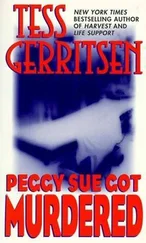“That, Julia,” I said, “was rather a pity.”
“If you,” said Julia, “had recently shared a bed with a young man of ethereal beauty, would it occur to you that his surname was Watson?”
“The contingency,” I answered, “is in my case remote. I should have thought, however, that it was a perfectly respectable name, such as anyone might have.”
“Precisely so,” said Julia sadly.
It had not been until Graziella arrived that anyone made it clear to Julia who it was who had been murdered. Fortunately, Graziella had conceived of the duties of a courier as including the protection of her clients during any interrogation by the police. She had accompanied Julia to the police station and had remained with her while she was questioned by the Vice-Quaestor — that is the title of the officer in charge of the case. The questioning had continued until after midnight, delayed by occasional disputes between Graziella and the official interpreter about the precise shade of meaning to be attributed to Julia’s answers.
Following, I gathered, some rather forceful representations from Graziella, Julia was released, on terms, however, of surrendering her passport and remaining in the Veneto. She had spent the rest of the night on Graziella’s sofa.
The account she had given the police of Friday afternoon is the same as is contained in her last letter to you: there is no point in my repeating it. After hearing it, I still felt that the field of suspects was entirely open. Not only the Art Lovers but almost anyone else, it seemed to me, could have been in the annexe on Friday evening. In particular, though, I still thought there had been time, after Kenneth came back from Verona, for a short but violent quarrel between him and Ned.
I felt more troubled about the lowering effect which the affair had had on her spirits. She attaches great significance to the signs of nervousness displayed by Ned on the morning of his death, attributing them to a fear of a murderous attack. She is persuaded that he was relying on her presence to protect him, and concludes that she is much to blame for leaving him asleep and defenceless.
“My dear Julia,” I said, “no one in their senses would choose you as a bodyguard.”
Since, however, she seemed unconvinced of this, I thought I had better change the subject by telling her of the professional reasons for my being in Venice: the idea of anyone incurring a £400,000 tax liability which could be avoided by a simple change of domicile was sufficiently shocking to divert her mind. There is, I think, nothing else in our conversation which needs to be reported to you.
This morning, taking breakfast again with my client, I was as sorry as circumstances permitted to find him not yet fully recovered. I am not, I suppose, taking quite so firm a line with Richard as my instructing solicitor would hope. Well, the Italian lawyer dealing with his great-aunt’s estate is joining us for dinner this evening — that will be soon enough to begin making him realize the seriousness of his position.
Having arranged with Signor Vespari that I would call at the Consulate at ten o’clock, I found when I arrived that he had already made an appointment for me to see the Vice-Quaestor later in the morning. He had also telephoned Graziella, to tell her of my being in Venice: this had the agreeable result that she had offered to meet me at the Consulate and to act as my interpreter in the interview with the Vice-Quaestor.
Graziella spoke indignantly on the way to the police station, of the absurdity of suspecting “the little Signorina Julia.” There being nothing in their relative sizes to justify the epithet — Graziella is delicately built — I take it to be a term of endearment.
“The little Signorina Julia,” she said, “is of course a most charming girl, most intelligent and serious”—Julia’s attentiveness to her lectures on the Gothic and the Byzantine has evidently made a good impression—“but as for committing murder — no, Signor Shepherd, she would not know how to.”
Graziella shrugged her shoulders, as if admitting some minor defect in an otherwise admirable character — she herself, no doubt, would, if she thought it necessary, commit a very competent murder. “To stab a man — if one has seen the Signorina attempting to slice a peach—”
I agreed that Julia’s dexterity would be tested to its limit by such a task.
“I have tried,” said Graziella, “to explain this to the Vice-Quaestor. But he will take no notice, because he wants everyone to say how clever he is when there is a murder to catch the murderer ten minutes afterwards. So he has continued to question the little Signorina half the night, hoping she will say something foolish. Finally I have explained to him that we are not living in a police state, thank God, and that it is not permissible for him to do this. So at last he has agreed that I shall arrange for the Signorina to stay in Chioggia, but he will not let her go home to London.”
“Julia told me,” I said, “how kind you had been.”
“It is nothing,” said Graziella. “But you will understand, Signor Shepherd, that perhaps the Vice-Quaestor will not be so very pleased to see me again.”
The Vice-Quaestor, a man of sad and operatic appearance, did indeed give the impression, when we were shown into his office, of being a police officer who had his troubles and did not find them alleviated by the reappearance of Graziella. “My own English is poor,” he said — with, as it turned out, undue modesty—“but I have two officers both very competent to interpret. The Signora need not have troubled herself.”
“It is no trouble, Signor Vice-Quaestor,” said Graziella serenely. “I am most happy to assist Signor Shepherd in anything he can do to help the little Signorina Julia.” Looking round his office, she evidently found it wanting in neatness and elegance. Before accepting the chair offered to her, she carefully dusted it with a paper handkerchief. Then, seeing that I was about to sit down without any similar precaution, she jumped up again, saying “Excuse me, Signor Shepherd, just a moment—” and dusted my chair as well. The Vice-Quaestor began to look harassed.
But in spite of the psychological advantage of making the Vice-Quaestor feel that his office was a pigsty, it was in the course of this interview that I first began to feel seriously worried about Julia’s position. It became clear, you see, that he really does think she did the murder.
It seemed at first that what impressed him was simply the sequence of events: Julia had been with the young man in his room; she had left alone; two hours later he had been found dead there — if there were an innocent explanation, it was for her to offer it.
“With respect,” I said, “that is a little unreasonable. It is precisely on the assumption that she is innocent that she will not be able to offer an explanation.” Graziella translated this with approval; but the Vice-Quaestor looked as if he thought it a piece of sophistry. “If she had any motive,” I continued, “then the circumstances might appear suspicious. But what conceivable reason could she have for doing such a thing?”
“Ah, Signor Shepherd,” he answered in English, without waiting for a translation, “who knows what a woman will do for the sake of love?” The man not only looks operatic — he thinks operatically as well.
“We are not speaking,” I said, “of a grand passion, but of a very brief and casual liaison.”
“Ah, for him, perhaps,” said the police officer. “But for her — consider, Signor, she has loved this man, she has given herself to him. And afterwards, if he tells her that he does not love her, that she has been a mere amusement to him — who knows what she might do then?”
Читать дальше











